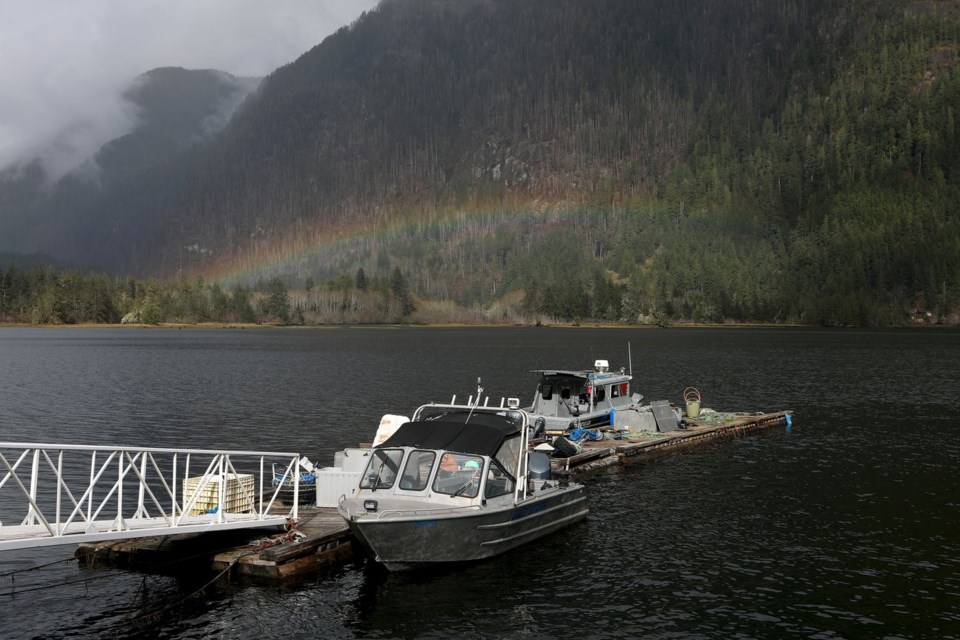VANCOUVER — Federal and British Columbia officials have confirmed a less dire start to this year's Canadian wildfire season when compared with last year, but forecasters are warning of renewed risks as the summer heat approaches.
Wildfire experts said during an update for B.C. on Wednesday that a cool and wet spring in parts of the province aided in suppressing fire activity, despite the large blazes near Fort Nelson that forced 4,700 people to evacuate in May.
BC Wildfire Service lead forecaster Matt MacDonald said fires across the province have burned about 300,000 hectares so far this year, a "not insignificant" amount but still encouraging when compared with last year.
"It's really … been confined to that northeast corner down through much of the Prince George Fire Centre and then some fires in the Cariboo, which were earlier on in the season," MacDonald said.
"If we compare to where we were at (at this time) last year in 2023, we were already approaching the million-hectare mark," he said of area burned by wildfire.
MacDonald said temperatures were near normal in May for much of the province, helping to slow snow melt and suppressing holdover fires from re-emerging after smouldering over the winter.
Some alpine areas were also able to add snow cover, he said.
But forecasts call for warmer than normal temperatures across much of the B.C. Interior in late June into July.
"Given those … conditions, it's quite likely that we will in fact see large fires in much of the province, but particularly that northeast down through the central Interior," MacDonald said. "So, please remain prepared. Continue to be vigilant."
On Wednesday, the BC Wildfire Service reported more than 100 active wildfires, with 10 classified as out-of-control and six started in the last 24 hours.
Among the new wildfires are multiple blazes within Kalamalka Lake Park south of Vernon, B.C., where the wildfire service and local firefighters were able to hold the fires. The wildfire service website said those fires were human caused.
The Canadian Interagency Forest Fire Centre agreed with B.C.'s assessment on Wednesday, saying this year's wildfire season has been less dire so far than 2023.
But it said the expected hot weather beginning this month means conditions are ripe for an above-average fire season across most of Canada.
The forecast said the risk of fires in June is extreme or very high in southern and northeastern B.C., northern Alberta, southern Saskatchewan and a small pocket of northern Manitoba, as well as most of Northwest Territories.
As of this week, more than 1,480 fires have burned about 5,200 square kilometres across the country, with almost two-thirds of the burned area located in British Columbia.
B.C. Minister of Emergency Management Bowinn Ma warned residents to remain vigilant, as extreme drought conditions persist in northeastern B.C. while snowpacks across the province are at 57 per cent of normal levels.
Ma reminded people to make sure they have wildfire insurance and have completed emergency planning in case of an evacuation order on short notice.
She said the province also learned from the evacuation process in Kelowna last year, where emergency reception centres "saw long lines … creating confusion and frustration" for people seeking support services.
To that end, the province has introduced several new measures to help wildfire evacuees cope with leaving their homes this summer.
Ma said they include an option for evacuees to receive a $200 daily accommodation allowance through an e-transfer, giving people more flexibility on where to stay if they have been forced out.
"While evacuees will still have the option of being directly referred to available lodging, this new e-transfer alternative option will allow people who are evacuated to make their own decisions on accommodation, whether that's to stay with family or friends, or find a hotel on their own, or stay at a campground," she said.
The improvements will also include enhanced online options for self-service pathways to receive support, Ma said.
"With these enhanced support options and pathways for assistance, British Columbians can be sure that if they are evacuated and need assistance, they'll receive the support that they need."
This report by The Canadian Press was first published June 12, 2024.
Chuck Chiang, The Canadian Press


